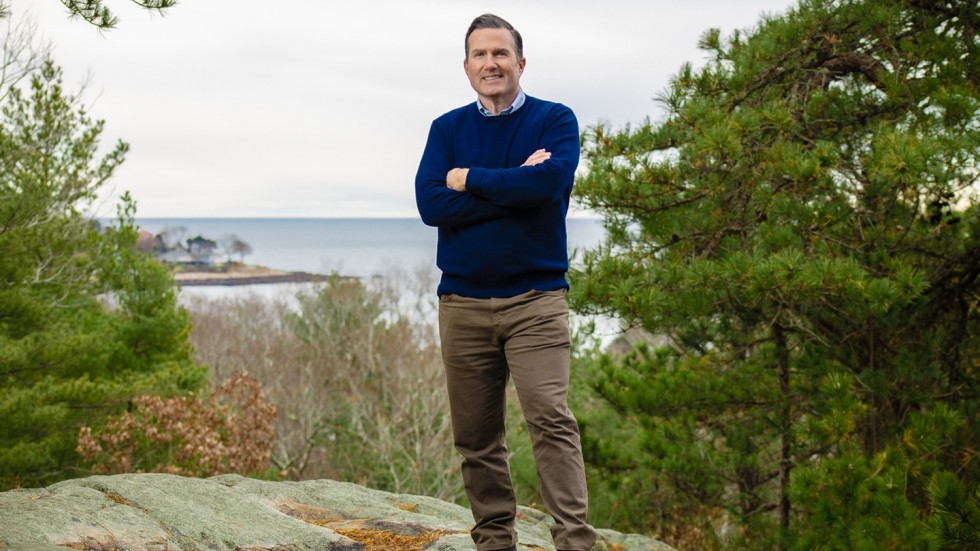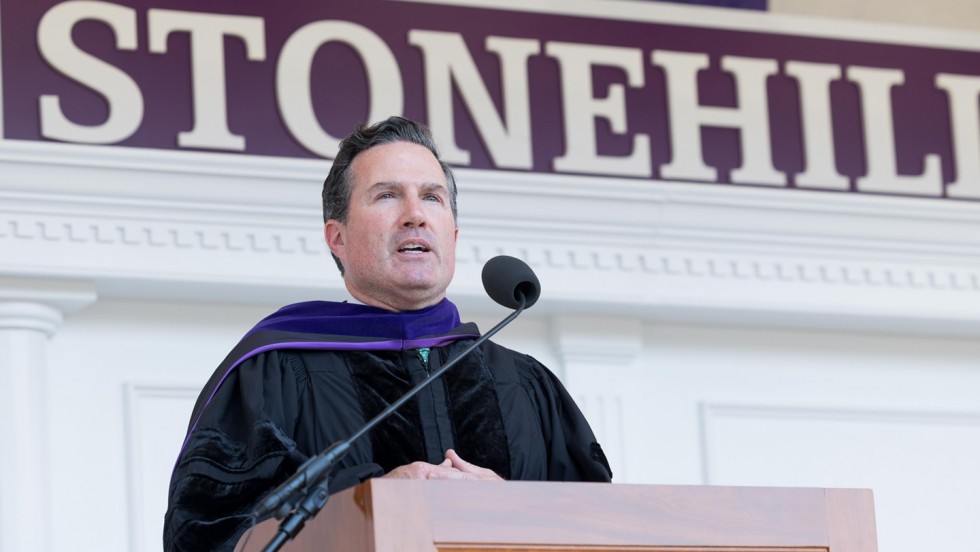Digital Detachment
Nature is not just part of Judge’s professional life—it is integral to his private life as well.
An avid hiker, kayaker and cross-country skier, he sees the outdoors as “one of the last bastions of digital detachment” and encourages others to “get out every day, away from the screens, the connections, and to appreciate what it means to be human.”
One of his favorite outdoor locations is in New Hampshire’s White Mountains—a trail that runs 20 miles across a range of three mountains in Grafton called the Bonds.
“The hike is less crowded, more remote and takes about a day to complete. It’s just a two-hour drive from Boston, and you are in the middle of the wilderness with spectacular views. And getting a really good workout,” he adds.
Every day, he and his dog take a morning walk towards the Atlantic Ocean where they stop to “take in the air, the view and the feel of the breeze.”
And, following in his father’s footsteps, Judge very much enjoys doing yard work as well as bonding with his five-year-old daughter while introducing her to the joys of nature such as skiing on a snowy day.
Just in Time
A proud, involved Stonehill alumnus today, Judge initially applied to and was accepted by Boston College, but at the time, BC’s tuition presented a challenge for his family. Fortunately, a call from Stonehill offering a partial scholarship arrived just in time for Judge.
“Coming to Stonehill was the best thing that happened to me. My first week, however, was miserable, as I had not attended orientation and therefore knew nobody. Plus they put me in a room by myself,” he recalls.
Using his initiative, Judge hit the library to study the New Student Record, a pre-social media book that featured student photos, names, hometowns and hobbies.
“With that information, I was able to break the ice and settled into college life swiftly. The rest is history,” says Judge, who invested himself in curricular and cocurricular activities, spinning discs on WSHL, sketching cartoons for The Summit, participating in student government and getting to know the grounds, especially walks on Rhododendron Drive and to Holy Cross Center.
Judge also got his first taste of philanthropy and the mechanics behind the profession as an Advancement Division work-study student, “toiling away in the basement of Donahue Hall, licking stamps on fundraising envelopes to alumni.”
He credits Economics Professor Hossein Kazemi for winning him not just to that academic discipline as his major, but also to the creation of a student Economics Club. In particular, he recalls working with campus partners to host a summit on international debts, with world renowned economists Anna Schwartz, Allen Sinai and Rachel McCulloch.
Judge also fondly remembers, “Physics Professor Chet Raymo explaining plate tectonics, being immersed in biblical scholarship with Religious Studies Professor Michael Coogan and learning about the practicalities of politics, government and representation from Professors James Millikan and George Hagerty ’75.”
In 1987, his peers elected him president of the Student Government Association, a role that helped prepare him for the demands of public life. During his first year in the position, rumors circulated that Commencement 1988 would be moved indoors, with the opening of the Sally Blair Sports Complex.
With Judge at the fore, seniors planned to protest in front of Donahue Hall against that possibility. Then he had a call from and a conversation with then-President Bartley MacPháidín, C.S.C. ’59. “Fr. Bart heard me out, and as we wrapped up, he said, ‘Okay, we will keep Commencement outdoors,’ which was great news. It means so much for seniors to be on the quad at the end of their four years. That’s our tradition,” he recalls.
For Judge, having that closeness or connection with his professors and many administrators was a form of mentorship that helped him find his way and get the most out of his education.
“I graduated with a global perspective, with more confidence in my ability to engage others and take the initiative and with an overall deeper appreciation for the promise of life itself,” says Judge.


